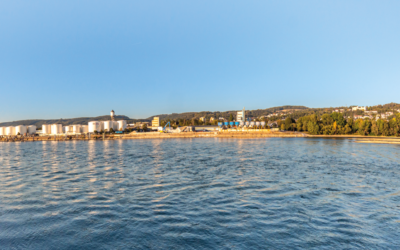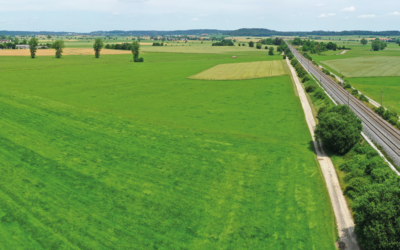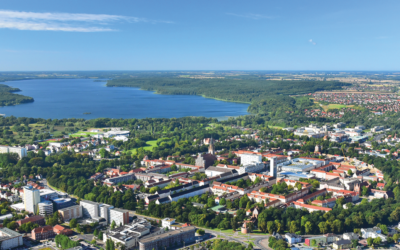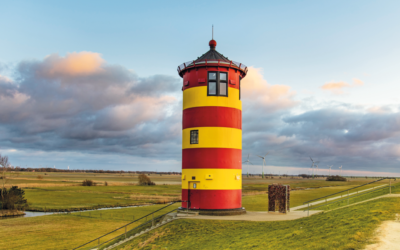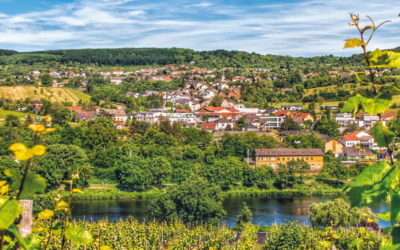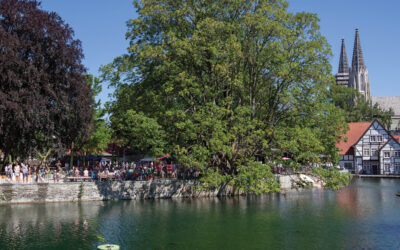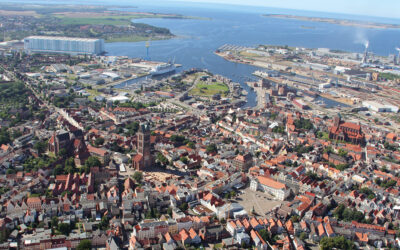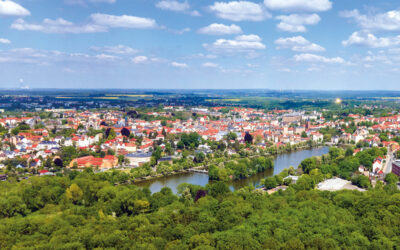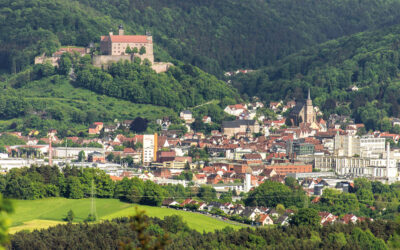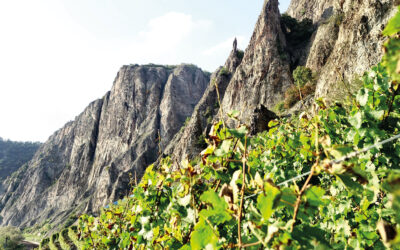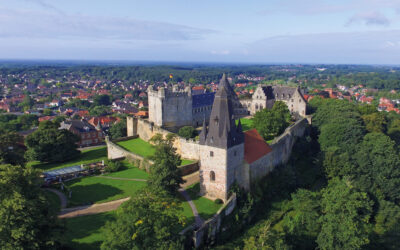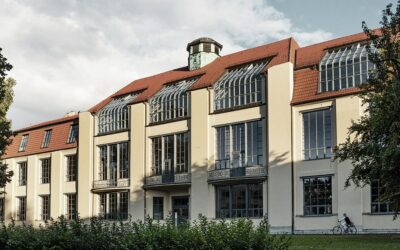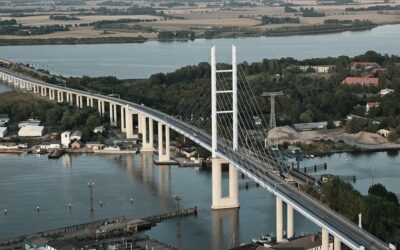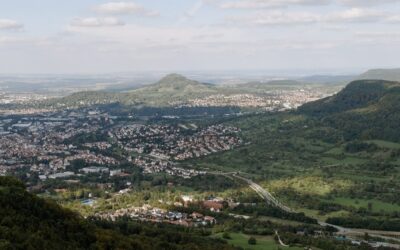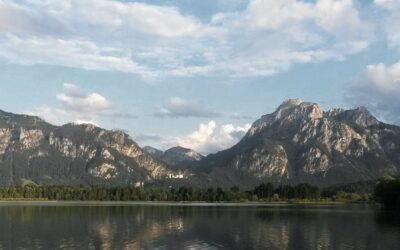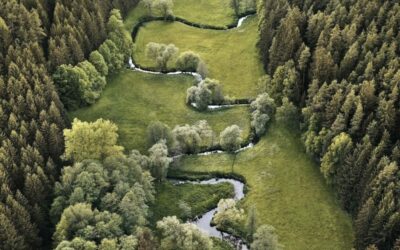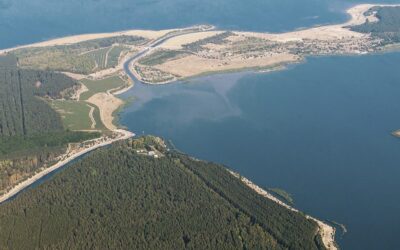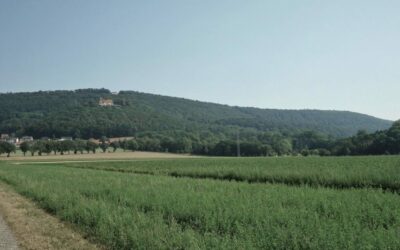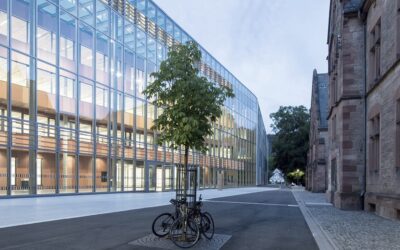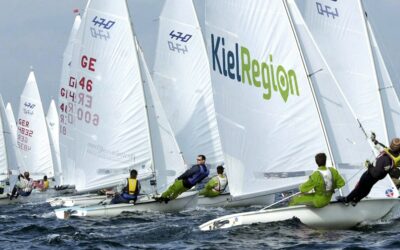HyStarter – Shaping the future with hydrogen
For HyLand I, nine regions were selected from 138 applications as so-called HyStarters. The winning regions each receive one year of technical and organisational advice and support in the development of a regionally tailored hydrogen concept and the formation of a network of stakeholders. The regional networks of politicians, municipal businesses, industry, trade and the community jointly develop concept ideas and projects in transport, but also in the areas of heating, electricity and energy storage.
The selected regions are spread across the entire country and set out with different prerequisites and objectives – which is precisely why they were chosen.
A total of six dialogues with regional stakeholders will be conducted during the project period. The dialogues are implemented as workshop formats and build upon each other. Based on the respective economic and structural framework conditions, individual hydrogen concepts will be developed with the stakeholders from the region. Each region has its own basic requirements and challenges, which are addressed together with the consortium. HyStarter regions do not receive financial support. The HyStarter regions are funded by a consortium of experts who provide the stakeholders and networks with technical and conceptual advice and support in the development and implementation of the expert dialogues. The consortium consists of Spilett, Choice, Becker-Büttner-Held Consulting, EE ENERGY ENGINEERS and Reiner-Lemoine-Institut. Detailed information on the process of concept development in the HyStarter regions can be found on the website of the Reiner Lemoine Institute.
And the next HyStarters are already in the starting blocks: In September 2021, the 15 winning regions of the second HyLand phase were announced.
Click on the respective region to go directly to the project pages. Here you will find comprehensive information regarding the projects.
HyStarter II: Region Bendorf
Bendorf am Rhein is an independent town in the district of Mayen-Koblenz in Rhineland-Palatinate with a population of around 17,000. In addition to the main town, it consists of the districts of Sayn, Mülhofen and Stromberg.
HyStarter II: District of Eichstätt
The district of Eichstätt with its 134,000 inhabitants and 30 municipalities is the geographical centre of Bavaria. Its diversity makes it unique: In virtually no other district are tradition and progress, nature-oriented life and highly productive work, the preservation of history and forward-looking action so closely intertwined.
HyStarter II: InterFranken special purpose association
The InterFranken special purpose association (Zweckverband InterFranken) is a municipal alliance of eight cities and municipalities. Members include: Diebach, Dombühl, Feuchtwangen, Schillingsfürst, Schnelldorf, Schopfloch, Wettringen and Wörnitz. InterFranken is located in the west of the Ansbach district at the A6/A7 motorway junction.
HyStarter II: State Capital Munich
The state capital of Munich is one of the most sought-after locations for business and innovation in Europe. The city on the Isar River is characterised by renowned global players, especially in the industrial and high-tech sectors, an innovative SME sector and a creative, broad-based start-up scene.
HyStarter II: Region Neubrandenburg/MSE
The Mecklenburg Lake District (Landkreis Mecklenburgische Seenplatte), with the four-gate city of Neubrandenburg as its main centre, is the largest district in Germany in terms of area, with around 280,000 inhabitants.
HyStarter II: Region East Frisia
The coastal region of East Frisia (Ostfriesland) is located in the extreme north-west of Lower Saxony and consists of the three districts of Aurich, Leer and Wittmund as well as the independent city of Emden. Covering an area of 3,142 square kilometres, 469,000 inhabitants live in the region.
HyStarter II: Municipality of Perl
The municipality of Perl is located in the district of Merzig-Wadern, directly in the border-free three-country juncture of Germany, Luxembourg and France, in the heart of the greater Saar-Lor-Lux region and in the midst of the four centres of Saarbrücken, Metz, Luxembourg and Trier.
HyStarter II: District of Soest So-H2
The district of Soest is located in the eastern centre of North Rhine-Westphalia in the administrative district of Arnsberg.
14 municipalities and seven cities belong to this industrially shaped, rural district with about 302,000 inhabitants. The district’s own climate protection concept is currently being updated in a parallel process and is intended to highlight pathways to achieving climate neutrality.
HyStarter II: Region Westpfalz
The Westpflaz (West Palatinate) region is made up of the three independent cities of Kaiserslautern, Pirmasens and Zweibrücken and the four administrative districts of Kusel, Kaiserslautern, Südwestpfalz and Donnersbergkreis. Approximately 520,000 inhabitants live in the region. In recent years, the area surrounding the scientific centre of Kaiserslautern has developed into one of the leading technology locations in southwestern Germany.
HyStarter II: Region Of Wismar
The Wismar region is characterised by its World Heritage status for its ensemble of historic buildings and its harbour. The glacially formed hinterland consisting of the coast and arable land has a large number of wind and solar plants, which contribute to the fact that more electricity is produced in the state than is consumed.
HyStarter II: District of Altenburger Land
Economically strong, family-friendly and culturally rich – that is the Altenburger Land district in the borders to Thuringia, Saxony and Saxony-Anhalt. A high standard of living and quality of life, the best location-based conditions for investors, and a good connection to the central German railway network are just a few of the advantages of our region.
HyStarter II: District of Kulmbach
The administrative district of Kulmbach is located in the heart of the administrative area of Upper Franconia in the Free State of Bavaria. It consists of 22 towns, markets and communities and has 72,000 inhabitants living in an area of 656 km². Innovative companies from a wide range of sectors have settled in the Kulmbach economic area. Together with the district of Kulmbach and university educational institutions, they form the H2-Allianz Landkreis Kulmbach+ (H2 Alliance Kulmbach+ District).
HyStarter II: Region of Rheinhessen-Nahe
The Rheinhessen-Nahe region is made up of the districts of Bad Kreuznach, Mainz-Bingen and Alzey-Worms. An area of 2,058 km2 is home to 482,872 inhabitants. The three districts comprise a total of seven independent towns and 22 municipalities.
HyStarter II: District of Göppingen
Geographically, the district of Göppingen in Baden-Württemberg can be located in the foothills of the Swabian Alb. With a total of nine towns and 29 other municipalities, the district is relatively rural and has abundant green and wooded areas. Excellent economic conditions meet a particularly charming landscape with a high recreational and tourist appeal.
HyStarter II: City of Bentheim
With 16,000 inhabitants, Bad Bentheim is located in the extreme south-western corner of Lower Saxony, bordering on North Rhine-Westphalia and the Netherlands. Bad Bentheim is known far beyond its borders as a health and recreation location, so it has long been a concern to preserve nature and live in harmony with it.
HyStarter I: Hydrogen Region Weimar
HyStarter I: Hydrogen Region Weimar, City of Weimar & District of Weimarer Land The cooperation region of Weimar and Weimarer Land is located between the cities of Jena and Erfurt and thereby occupies the rural area located between the cities of Thuringia.
HyStarter I: Hydrogen Region Rügen-Stralsund
HyStarter I: Hydrogen Region Rügen-Stralsund, District of Vorpommern-Rügen, Island of Rügen & City of Stralsund. A large number of applications from a wide range of stakeholders have been received from Rügen and Stralsund to participate in the HyStarter project.
HyStarter I: Hydrogen Region Reutlingen
HyStarter I: Wasserstoffregion Reutlingen, District of Reutlingen. The district of Reutlingen is located in the Stuttgart metropolitan region and consists of the rural Alb plateau and the more industrially dominated Alb foothills which are home to a number of large companies such as Robert Bosch GmbH and ElringKlinger AG.
HyStarter I: Hydrogen Region Ostallgäu
HyStarter I: Hydrogen Region Ostallgäu, Municipality of Fuchstal, City of Kaufbeuren & District of Ostallgäu. The HyStarter Region Ostallgäu/Allgäu consists of the municipality of Fuchstal in the Upper Bavarian district of Landsberg am Lech as well as the district of Ostallgäu and the city of Kaufbeuren.
HyStarter I: Hydrogen Region District of Neustadt an der Waldnaab
HyStarter I: Hydrogen Region District of Neustadt an der Waldnaab, District of Neustadt an der Waldnaab. The district of Neustadt an der Waldnaab is located in northern Upper Palatinate and covers an area of 1,428 km² with a population of around 94,500 (as of 30.06.2018).
HyStarter I: Hydrogen Region Lausitz
HyStarter I: Hydrogen Region Lausitz, City of Cottbus, District of Bautzen, District of Dahme-Spreewald, District of Elbe-Elster, District of Görlitz, District of Oberspreewald-Lausitz & District of Spree-Neiße.
HyStarter I: Hydrogen Region Schaumburg
HyStarter I: Hydrogen Region Schaumburg, District of Schaumburg. The district of Schaumburg is a rural yet densely populated region and resembles Germany in miniature.
HyStarter I: Hydrogen Region Marburg-Biedenkopf
HyStarter I: Hydrogen Region Marburg-Biedenkopf, District of Marburg-Biedenkopf, University City of Marburg & Stadtwerke Marburg. The district of Marburg-Biedenkopf, with the university city of Marburg as the district capital, is a diverse and productive location with its own profile.
HyStarter I: KielRegion Hydrogen Region
HyStarter I: KielRegion Hydrogen Region, State Capital Kiel, District of Plön & District of Rendsburg-Eckernförde. In the middle of the true north and in the heart of Schleswig-Holstein lies the KielRegion.

